Dr Isidro Cortes Ciriano

Research Group Leader at EMBL-EBI
Contact information
European Bioinformatics Institute (EMBL-EBI)
United Kingdom
Biography
Isidro Cortés-Ciriano will join EMBL-EBI as Research Group Leader in June 2019 after completing postdoctoral training at Harvard Medical School, under the supervision of Prof. Peter Park, and at the University of Cambridge, under the supervision of Prof. Andreas Bender. Isidro completed his PhD at the Pasteur Institute in 2015. Isidro’s expertise includes biology, genomics and statistical modelling. His team focuses on the analysis of genome sequencing data sets from cancer patients and preclinical models using artificial intelligence and statistical methods.
Research interests
We are interested in the development of computational tools to characterize the patterns of mutations and genome instability processes in human cancers through the analysis of genome sequencing data from clinical samples and preclinical models. Our research areas include the discovery of biomarkers of drug response, inference of the molecular mechanisms underlying cancer evolution, early detection of cancer, and the identification of the somatic alterations predictive of response and resistance to immunotherapies. We are also interested in the application of artificial intelligence to model drug response using genomically characterized preclinical models to uncover new vulnerabilities of cancer.
We are now recruiting PhD students and Postdoctoral Fellows with a strong background in molecular biology and quantitative skills to work on cancer genome sequencing projects developed in close collaboration with experimental biologists and clinicians.
Publications
Selected Publications:
2019
Cortes-Ciriano, I. et al. Comprehensive analysis of chromothripsis in 2,658 human cancers using whole-genome sequencing. bioRxiv 333617. Nat. Genet. In press (2019).
Gulhan et al. Detecting the mutational signature of homologous recombination deficiency in clinical samples. Nat. Genet. In press (2019)
Bohrson, C. L. et al. Linked-read analysis identifies mutations in single-cell DNA sequencing data. Nat. Genet. 51, 749–754 (2019)
Cortes-Ciriano, I. & Bender, A. Deep Confidence: a computationally efficient framework for calculating reliable errors for deep neural networks. J. Chem. Inf. Model. 59, 1269–1281 (2019).
Watson, O., Cortes-Ciriano, I., Taylor, A. & Watson, J. A. A decision theoretic approach to model evaluation in computational drug discovery. Bioinformatics, In press (2019).
Cortes-Ciriano, I. & Bender, A. Reliable prediction errors for deep neural networks using test-time dropout. arXiv 1904.06330 (2019).
2018
Bailey, M. H. et al. Comprehensive characterization of cancer driver genes and mutations. Cell 173, 371–385.e18 (2018).
Ding, L. et al. Perspective on oncogenic processes at the end of the beginning of cancer genomics. Cell 173, 305–320.e10 (2018).
Cortes-Ciriano, I. & Bender, A. KekuleScope: improved prediction of cancer cell line sensitivity using convolutional neural networks trained on compound images. arXiv 1811.09036 (2018).
Cortes-Ciriano, I., Firth, N. C., Bender, A. & Watson, O. Discovering highly potent molecules from an initial set of inactives using iterative screening. J. Chem. Inf. Model. 58, 2000-2014 (2018).
Svensson, F. et al. Conformal regression for quantitative structure–activity relationship modeling—quantifying prediction uncertainty. J. Chem. Inf. Model. 58, 1132-1140 (2018).
Menden, M. P. et al. A cancer pharmacogenomic screen powering crowd-sourced advancement of drug combination prediction. bioRxiv 200451 (2018). doi:10.1101/200451
2017
Cortes-Ciriano, I., Lee, S., Park, W.-Y., Kim, T.-M. & Park, P. J. A molecular portrait of microsatellite instability across multiple cancers. Nat. Commun. 8, 15180 (2017).
Sieverling, L. et al. Genomic footprints of activated telomere maintenance mechanisms in cancer. bioRxiv 157560 (2017). doi:10.1101/157560
McConnell, M. J. et al. Intersection of diverse neuronal genomes and neuropsychiatric disease: The Brain Somatic Mosaicism Network. Science 356, eaal1641 (2017).
Cortes-Ciriano, I. et al. Cancer Cell Line Profiler (CCLP): a webserver for the prediction of compound activity across the NCI60 panel. bioRxiv 105478 (2017). doi:10.1101/105478
Cortes-Ciriano, I., Mervin, L. & Bender, A. Current trends in drug sensitivity prediction. Curr. Pharm. Des. 22, 6918–6927 (2017).
2016
Cortes-Ciriano, I. et al. Improved large-scale prediction of growth inhibition patterns using the NCI60 cancer cell line panel. Bioinformatics 32, 85–95 (2016).
Saini, N. et al. The impact of environmental and endogenous damage on somatic mutation load in human skin fibroblasts. PLOS Genet. 12, e1006385 (2016).
Cortes-Ciriano, I. Benchmarking the predictive power of ligand efficiency indices in QSAR. J. Chem. Inf. Model. 56, 1576-1587 (2016)
Cortes-Ciriano, I. Bioalerts: a python library for the derivation of structural alerts from bioactivity and toxicity data sets. J. Cheminform. 8, 13 (2016).
Allen, C. H. G. et al. Improving the prediction of organism-level toxicity through integration of chemical, protein target and cytotoxicity qHTS data. Toxicol. Res. 5, 883–894 (2016).
2015
Cortes-Ciriano, I. & Bender, A. Improved chemical structure–activity modeling through data augmentation. J. Chem. Inf. Model. 55, 2682–2692 (2015).
Cortes-Ciriano, I. & Bender, A. How consistent are publicly reported cytotoxicity data? Large-scale statistical analysis of the concordance of public independent cytotoxicity measurements. ChemMedChem 11, 57–71 (2015).
Murrell, D. S., Cortes-Ciriano, I., et al. Chemically Aware Model Builder (camb): an R package for property and bioactivity modelling of small molecules. J. Chemin. 7, 45 (2015).
Cortes-Ciriano, I. et al. Comparing the influence of simulated experimental errors on 12 machine learning algorithms in bioactivity modeling using 12 diverse data sets. J. Chem. Inf. Model. 55, 1413–1425 (2015).
Cortes-Ciriano, I., Bouvier, G., Nilges, M., Maragliano, L. & Malliavin, T. E. Temperature accelerated molecular dynamics with soft-ratcheting criterion orients enhanced sampling by low-resolution information. J. Chem. Theory Comput. 11, 3446–3454 (2015).
Paricharak, S. S., Cortes-Ciriano, I., et al. Proteochemometric modeling coupled to in silico target prediction: an integrated approach for the simultaneous prediction of polypharmacology and binding affinity of small molecules. J. Cheminf. 7, 15 (2015).
Harigua-Souiai, E. et al. Identification of binding sites and favorable ligand binding moieties by virtual screening and self-organizing map analysis. BMC Bioinformatics 16, 93 (2015).
Cortes-Ciriano, I., Bender, A. & Malliavin, T. Prediction of PARP inhibition with proteochemometric modelling and conformal prediction. Mol. Inform. 34, 357–366 (2015).
Cortes-Ciriano, I. et al. Polypharmacology modelling using proteochemometrics: recent developments and future prospects. Med. Chem. Comm. 6, 24 (2015).
2014
Cortes-Ciriano, I., Murrell, D. S., van Westen, G. J. P., Bender, A. & Malliavin, T. Prediction of the potency of mammalian cyclooxygenase inhibitors with ensemble proteochemometric modeling. J. Cheminf. 7, 1 (2014).
Ain, Q. U. et al. Modelling ligand selectivity of serine proteases using integrative proteochemometric approaches improves model performance and allows the multi-target dependent interpretation of features. Integr. Biol. 6, 1023-1033 (2014).
Liggi, S. et al. Extending in silico mechanism-of-action analysis by annotating targets with pathways: application to cellular cytotoxicity readouts. Futur. Med Chem 6, 2029–2056 (2014).
Cortes-Ciriano, I. et al. Proteochemometric modeling in a Bayesian framework. J. Cheminf. 6, 35 (2014).
2013
van Westen, G. J. et al. Benchmarking of protein descriptor sets in proteochemometric modeling (part 2): modeling performance of 13 amino acid descriptor sets. J. Cheminf. 5, 42 (2013).
Cortes-Ciriano, I. et al. Experimental validation of in silico target predictions on synergistic protein targets. Med. Chem. Comm. 4, 278–288 (2013).
 Cambridge Centre for
Cambridge Centre for